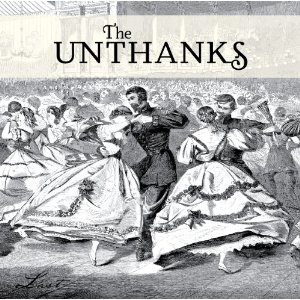And ever since then Britain’s indigenous music has been the subject of much mirth, not least amongst a rock/pop contingent too cool to admit they probably owe massive debt to the music they so deride.
All of which is a shame, because to dismiss British folk is to dismiss a wealth of music that is a living history of this island. Sidestep the pathetic nationalism of folk’s more conservative corners and ignore the traditionalist who baulk at – you know – electricity and wheels and other new-fangled inventions, and there’s a whole world of music awaiting new ears. Recent decades has seen folk make huge leaps, from the leftist street songs of Ewan MacColl through to the pastoral vistas of Nick Drake, the dark candle-lit of Comus to the head-bending signatures of The Incredible String Band or the utterly odd, chart-topping genius of Kate Bush. Throw in Pentangle, John Martyn, The Pogues, Fairport Convention, The Wicker Man and Billy Bragg and you have a rich tradition that pisses in the eye of the finger-in-ear stereotype. And that’s just the tip of the Brit-folk iceberg. That’s just the really obvious stuff.
You can add to this list The Unthanks, who are shaping up to be the new gateway bands into this overlooked world, just as the likes of John Martyn and Nick Drake were before them. And this, their fourth album, could well be the collection to garner them the mainstream awards and accolades they deserve.
The Unthanks’ roots run deep into their native Northumberland and Tyneside like a thick black seam of the "dusky diamonds" on which an empire ran, and for which the north-east was still recently synonymous, their music managing to straddle the two contrasting eras that define their home turf: the industrial past where life was hard and short and dirty and the borders were paraded by warring chieftains, and the far calmer bucolic tourist spot of the Northumberland of today, where the pits are all but shut but where the choppy sea meets an expansive sky; where England nestles up against Scotland and space and good light prevails.
Last‘s under-stated and amazingly atmospheric album opener ‘Gan To The Kye’ has nods towards Joe Boyd’s pastoral string arrangements for the aforementioned Nick Drake and is a song than encapsulates everything that is great about The Unthanks . It shows an ability to strip everything back to the bare bones of a song, always ensuring that the vocals of Rachel and Becky Unthank take centre stage.
This is important: there’s no clutter in their music, and the result is as effortlessly effecting and sparse as anything dubstep or post-rock could produce; it’s a sound as evocative as Robert Wyatt’s classic ‘Shipbuilding’, as stirring as Fleet Foxes and as deftly-delivered as Radiohead’s finer moments.
Another strength is The Unthanks ability to introduce Northumbrian / Tyneside folklore and linguistic colloquialisms into music that nevertheless remains resolutely universal in appeal. Canny Hobbie Elliot may sound like a pitmatic nursery rhyme along the lines of the traditional Tyneside folk anthem ‘Blaydon Places’ but along with the violin-laden ‘My Laddie Sits Ower Late Up’ is only really two steps removed from Celtic folk, or wouldn’t be out of place being sung from a homesteaders porch in certain Southern US states of a century and a half ago. They’re timeless and universal, two words not normally associated with folk.
Because despite the influence of British heritage acts, The Unthanks’ scope is too wide to judge them simply as a Northern folk band. As if to remind listeners of this, they share their wider influences on surprisingly faithful version of King Crimson’s ‘Starless’ (a proto-Muse song if ever there was) and Tom Waits’ 2002 track ‘No One Knows I’m Gone’. On paper these may appear unlikely choices of songs, but on record they make complete sense. And as the band point out the album’s cover, a painting by 19th century artist Winslow Homer, is "our equivalent of Blur’s tremendous steam train cover of Modern Life Is Rubbish."
When the latest pop fad fades from view, The Unthanks music will continue to resonate down through the generations. Not because it is folk and therefore somehow more earnest or important than pop, but because it is simply good. This is music that will last. And that perhaps is precisely the point that the ambiguous album title is getting at.


